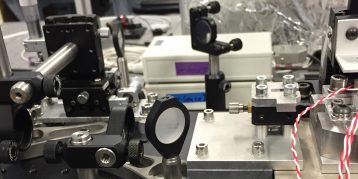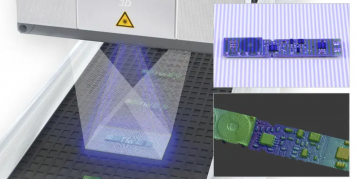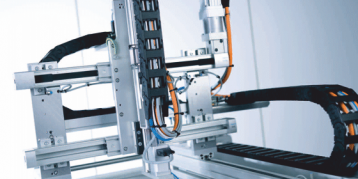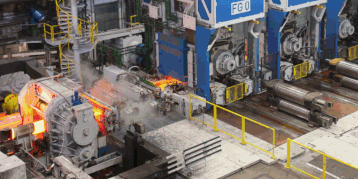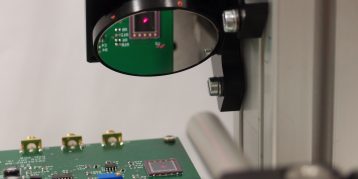Institut für Automatisierungs- und Regelungstechnik
Das Institut für Automatisierungs- und Regelungstechnik (ACIN) gehört der Fakultät für Elektrotechnik und Informationstechnik der Technischen Universität Wien an. Mit über 70 MitarbeiterInnen betreibt unser Institut Grundlagenforschung, löst herausfordernde praktische Problemstellungen in einer Vielzahl von industriellen Kooperationsprojekten, entwickelt Innovationen und bietet den Studierenden eine fundierte forschungsgeleitete Lehre auf dem Gebiet der System- und Automatisierungstechnik. Das Institut gliedert sich in die zwei Forschungsbereiche Advanced Mechatronic Systems und Komplexe Dynamische Systeme.
Wenn Sie Fragen bezüglich der Forschung oder Lehre an unserem Institut haben, eine unternehmerische Beratung wünschen oder im Rahmen einer Kooperation eine in diesem Zusammenhang herausfordernde Aufgabenstellung mit uns bearbeiten wollen, dann kontaktieren Sie uns bitte!
Prof. Gerfried Zeichen (1934-2024): Ein Nachruf

Die TU Wien, die Fakultät für Elektrotechnik und Informationstechnik (ETIT) und das Institut für Automatisierungs- und Regelungstechnik (ACIN) trauern um Em.O.Univ.Prof. Dipl.-Ing. Dr. techn. Gerfried Zeichen (1934-2024).
Mit tiefer Trauer mussten wir erfahren, dass unser allseits geschätzter Kollege, langjährige Institutsvorstand, Doktorvater, Lehrer, Mentor und Freund, Prof. Gerfried Zeichen am 21. April 2024 im 90. Lebensjahr von uns gegangen ist.
Gerfried Zeichen wurde am 25. Juli 1934 in Wien geboren. Nach Abschluss des Maschinenbaustudiums an der TU Graz (1958) und seiner Promotion (1963) wechselte er in die Industrie. In seinen 10 Jahre bei Carl Zeiss in Oberkochen, Deutschland, befasste er sich intensiv mit Präzisions- und Fertigungsmesstechnik und schuf dabei die Grundlagen für moderne Koordinatenmessmaschinen, sowie das erste komplett computergesteuerte, flexible Fertigungssystem für eine vollautomatisierte 24h-durchgehende Produktion. Im Jahr 1973 wechselte er für 11 Jahre zur Steyr-Daimler-Puch AG in Graz, wo er für die Entwicklung der Allradfahrzeuge und später als Technischer Direktor und Vorstandsmitglied für die gesamte Produktion verantwortlich war. Im Zuge der Bestellung zum Vorstandsdirektor absolvierte er 1978 zudem eine Ausbildung zum MBA am INSEAD in Fontainebleau.
1984 wurde er zum ordentlichen Universitätsprofessor für Flexible Automation an die TU Wien berufen. Über 180 Publikationen und Vorträge, etwa 200 betreute Diplomarbeiten und 50 Dissertationen belegen sein umfassendes Wirken als Forscher und Hochschullehrer. Er war stets bestrebt, Wissenschaft und Wirtschaft zu verbinden – und so zeichnet sich seine einzigartige Karriere nicht nur durch wissenschaftliche Erfolge in der industriellen Grundlagenforschung aus, sondern auch durch sein Streben, den Technologietransfer von den Universitäten hin zu Industrie und Wirtschaft zu verbessern.
1994 war er Gründer der Firma PROFACTOR in Steyr (heute unter Beteiligung des Upper Austrian Research GmbH (UAR) und des AIT Austrian Institute of Technology) und der Vereinigung zur Förderung der Modernisierung der Produktionstechnologie in Österreich (VPTÖ), deren Vorsitzender er auch bis 2005 war. Im Jahr 1996 gründete er das CTR (Carinthian Tech Research) in Villach, das 2019 in die Silicon Austria Labs GmbH integriert wurde.
2002 gründete Gerfried Zeichen die Firma ATENSOR in Steyr, die er ebenfalls bis 2005 leitete und welche heute als Micro-Epsilon Atensor GmbH Teil der Micro-Epsilon-Gruppe ist.
Seit seiner Emeritierung im Jahr 2002 blieb er dem ACIN und der TU Wien stets tief verbunden und verbrachte auch weiterhin viele Stunden am Institut, bei Veranstaltungen und in anregenden Diskussionen. Seither verfasste er drei Fachbücher zu den Themen Innovation, Führung und Zukunft der Produktionstechnologien. Es war ihm ein äußerst wichtiges Anliegen und eine große Freude, seine Erfahrungen und sein Wissen in der Produktion und Industrie mit jungen Forscherinnen und Forschern zu teilen und diese Begeisterung in Diskussionen und in seinen Veröffentlichungen weiterzugeben.
In Anerkennung seiner Leistungen, verlieh der Bundespräsident 2003 an Prof. Gerfried Zeichen das Große Silberne Ehrenzeichen für Verdienste um die Republik Österreich. Des Weiteren wurde er 2018 von der österreichischen Wirtschaftskammer für seine Verdienste um die österreichische Wirtschaft mit der Goldenen Ehrennadel ausgezeichnet.
Gerfried Zeichen hat uns durch sein Wirken und sein positives Beispiel sehr viel gegeben und wir sind sehr dankbar dafür, dass er in unseren Gedanken, sowie in unserer wissenschaftlichen Forschung und im industriellen Streben weiterlebt. Wir werden das Andenken an diesen außergewöhnlichen Innovator, Mentor und Lehrer sowie großartigen Menschen stets in Ehren halten.
Unsere große Anteilnahme gilt seiner Familie, mit der wir in tiefer Trauer verbunden sind.

